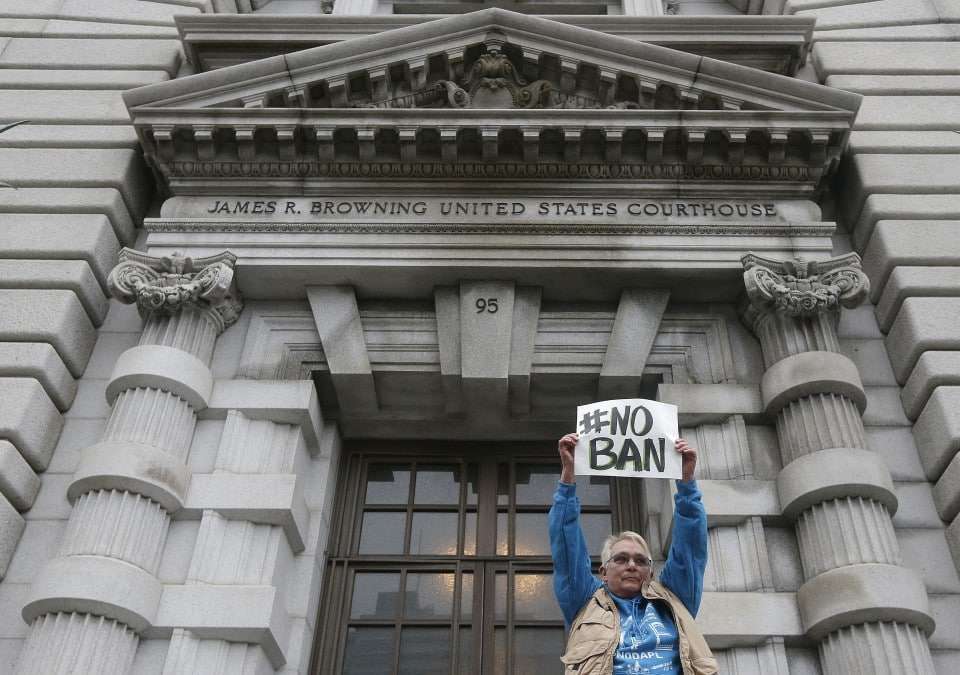The Volokh Conspiracy
Mostly law professors | Sometimes contrarian | Often libertarian | Always independent
Quick reactions to the 9th Circuit's decision in Washington v. Trump

Today the U.S. Court of Appeals for the 9th Circuit issued a unanimous per curiam decision in Washington v. Trump, denying the government's emergency appeal to stay the temporary restraining order/preliminary injunction issued against Executive Order 13769.
I'm sure we'll have lots to say about these legal issues as things evolve, but for now a few quick reactions:
1. While the decision is a complete win for the plaintiffs for now, it leaves a lot undecided. It rests on the most solid, and narrowest, theory of state standing (proprietary interests in the state universities in Washington and Minnesota). It decides that some of the affected individuals are likely to have successful due process claims. It does not reach the discrimination claim.
2. The opinion also hints in several places that a more modest Justice Department litigating position, and more editing of the executive order by lawyers, might have led to a partly different outcome.
For instance, the 9th Circuit has not decided that the state standing and due process theories are enough to actually sustain the full breadth of the injunction, but concludes that "the Government has not proposed a workable alternative form of the TRO" or one that protects everybody with "viable due process claims." This suggests that it might have treated a more modest DOJ challenge differently.
Also, the opinion refuses to treat the executive order as having been narrowed by the later interpretation of the White House Counsel, noting both "the Government's shifting interpretations of the Executive Order" and the fact that "the White House counsel is not the President, and he is not known to be in the chain of command for any of the Executive Departments." This suggests that if the White House Counsel wants the order to be narrowed, he needs to do it by getting the president to issue an amended order.
3. Obviously this is not the end of the litigation - there may well be a petition for en banc review to the 9th Circuit or for certiorari to the Supreme Court. And either way, there will likely be many more stages of this litigation.
What will happen? My suspicion is that the government's ability to prevail will depend in part on whether it is willing to modify its litigating position, or to formally modify the order, in response to its biggest vulnerabilities.
Of course, that raises the question of whether the government is in fact trying to win this litigation, as Jack Goldsmith has asked, as well as the question of what role lawyers serve in this administration, as I have asked.
We shall see.


Hide Comments (0)
Editor's Note: We invite comments and request that they be civil and on-topic. We do not moderate or assume any responsibility for comments, which are owned by the readers who post them. Comments do not represent the views of Reason.com or Reason Foundation. We reserve the right to delete any comment for any reason at any time. Comments may only be edited within 5 minutes of posting. Report abuses.
Please to post comments
Mute this user?
Ban this user?
Un-ban this user?
Nuke this user?
Un-nuke this user?
Flag this comment?
Un-flag this comment?